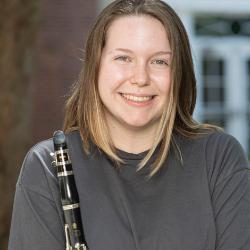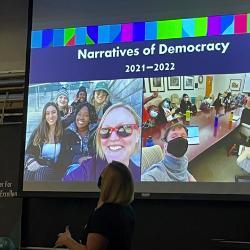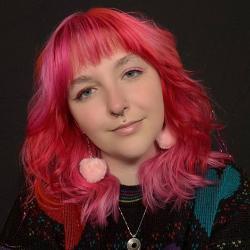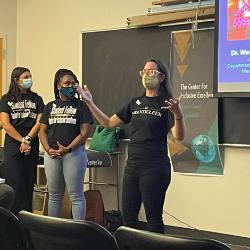
By Michael Kane
 It’s strange when reality takes us by surprise. Yet when Hailey Cornell, junior music major, recently performed “Sonata, Mvt. I” by Amanda Harberg, it was the first time in her 10-year musical career that she played a piece written by a woman.
It’s strange when reality takes us by surprise. Yet when Hailey Cornell, junior music major, recently performed “Sonata, Mvt. I” by Amanda Harberg, it was the first time in her 10-year musical career that she played a piece written by a woman.
Moments like this are the raison d’etre for the Edwards College’s new Center for Inclusive Excellence (CIE). Many students have stories comparable to Cornell’s, and the Edwards College is committed to highlighting inclusion as a vital component of its educational experience. With its tag line of “Learn local, go global: inclusive thought and action, across boundaries,” the CIE is dedicated to exceptional and socially responsible research and teaching.
This kind of ‘meta’ knowledge about how and what we are taught translates into power."
The CIE is an expansion and second generation of the Edwards Research Fellows Program. Jen Boyle, CIE director and Edwards College assistant dean of Interdisciplinary Programs and Research, worked closely with Edwards College Dean Claudia Bornholdt to build this initiative as a research hub for the college. It includes in-depth training and research for 12 student Fellows and team-teaching for three faculty Fellows for a comprehensively interdisciplinary research experience. In addition, the CIE sponsors public events featuring nationally renowned scholars and researchers doing work that sheds light on issues of inclusivity in a variety of fields.
“The new Edwards College Center for Inclusive Excellence is a research center that includes faculty, students, and community stakeholders building out projects together over a given year, organized around a particular research theme,” said Boyle.
 This year’s topic, “Narratives in Democracy,” aims to explore power and citizenship in the past, present and future. Through projects in music, communication, and art history, the Fellows will examine these concepts by developing critical and creative discourse around the stories, events and artifacts that make up the United States and our democratic nature.
This year’s topic, “Narratives in Democracy,” aims to explore power and citizenship in the past, present and future. Through projects in music, communication, and art history, the Fellows will examine these concepts by developing critical and creative discourse around the stories, events and artifacts that make up the United States and our democratic nature.
“Democracy is perhaps a term we take for granted,” said Boyle. “We may just think politics when we think of democracy, but the ‘narratives’ in the topic title reminds us that all our creative and research output embodies values related to how we believe truth and participation should function in a society. So narratives of democracy are implicated in all our work as learners and producers.”
The CIE’s inaugural faculty Fellows, who each hold a two-year term, include Elizabeth Baltes, associate professor of art history in the Department of Visual Arts; Wendy Weinhold, associate professor of journalism in the Department of Communication and Media Studies; and Eric Schultz, assistant professor of clarinet in the Department of Music.
Baltes explained how her CIE project reflects and expands on her scholarly research as an art historian.
“I am engaging the student Fellows in a research project related to my own scholarly work on portrait monuments… which consists of investigating and documenting the commemorative landscape of South Carolina,” said Baltes. “Student Fellows will be thinking about not only who we have honored (and why), but also who we have excluded from public honors (and why).”
In the field of journalism, Weinhold is leading a project on the development of “Coastal Connections,” a radio program designed to tell the stories of those who often get overlooked in the Grand Strand area. The short features are designed to run as radio stories.
“There’s wonderful stories about art and culture in many cities within South Carolina,” said Weinhold. “But Myrtle Beach has art and culture too, despite the narratives that are often constructed about and around this area. My hope is that Coastal Connections can challenge and speak back to those normative narratives.”
Schultz, having been immersed in music education for over a decade, found that the representation of voices within the monolithic canon of classical music reflected historical marginalization of certain groups and communities.
“Even with a terminal degree in the field,” said Schultz, “I struggle to think of a standard piece by a BIPOC composer for any woodwind instrument. My students, and students across the country, are demanding to study music by composers to whom they can relate. This is the embodiment of democracy in music, and it seems to me that many fields have similar representation issues.”
The inaugural cohort of student Fellows are based in English, communication, music education, intelligence and national security studies, graphic design, and musical theatre.
 Sage Short, CIE fellow and senior English major, noted that interdisciplinary collaboration is one of the CIE’s greatest strengths. This range of academic interests leads organically to a variety of approaches in considering a given topic or project.
Sage Short, CIE fellow and senior English major, noted that interdisciplinary collaboration is one of the CIE’s greatest strengths. This range of academic interests leads organically to a variety of approaches in considering a given topic or project.
“All of our differing perspectives blend together nicely,” said Short. “It creates an atmosphere where everyone gets an opportunity to voice their concerns and express their wishes for the center and our group projects.”
Boyle pointed to a recent discussion as an example of how knowledge in one academic discipline connects to that of another.
“During a recent discussion among faculty and student Fellows, a conversation started about the musical canon (a list of musicians who are thought to be foundational to western world learning)” said Boyle. “Much of our work on more inclusive approaches attempts to uncover those important influences left out of the canon. In this session, a conversation that began about classical music was suddenly picked up by a group who have been studying what is called the ‘pyramid of significance’ in journalism. This revelation led to a vibrant discussion about how these influences are shared across disciplines without us even recognizing the flow. This kind of ‘meta’ knowledge about how and what we are taught translates into power.”
those important influences left out of the canon. In this session, a conversation that began about classical music was suddenly picked up by a group who have been studying what is called the ‘pyramid of significance’ in journalism. This revelation led to a vibrant discussion about how these influences are shared across disciplines without us even recognizing the flow. This kind of ‘meta’ knowledge about how and what we are taught translates into power.”
While corresponding centers at other universities are based at the administrative level, the Edwards College CIE is focused on the organic growth of ideas from both students and faculty. Their collective imagination leads to teaching missions, focused research and pedagogy that promote not only the importance of inclusivity, but also the academic prowess of the learners within the Edwards College.
Boyle said the work of the CIE leads to revelations for everyone involved in it.
“The revealing and exciting discovery for me over the last year and half working on this initiative is how truly inclusive research and education can redefine the power of and audience for the amazing work we do at public regional institutions like the Edwards College and Coastal Carolina University. This is an initiative that really allows communities to see up close what a regional university can mean for their lives and communities.”





